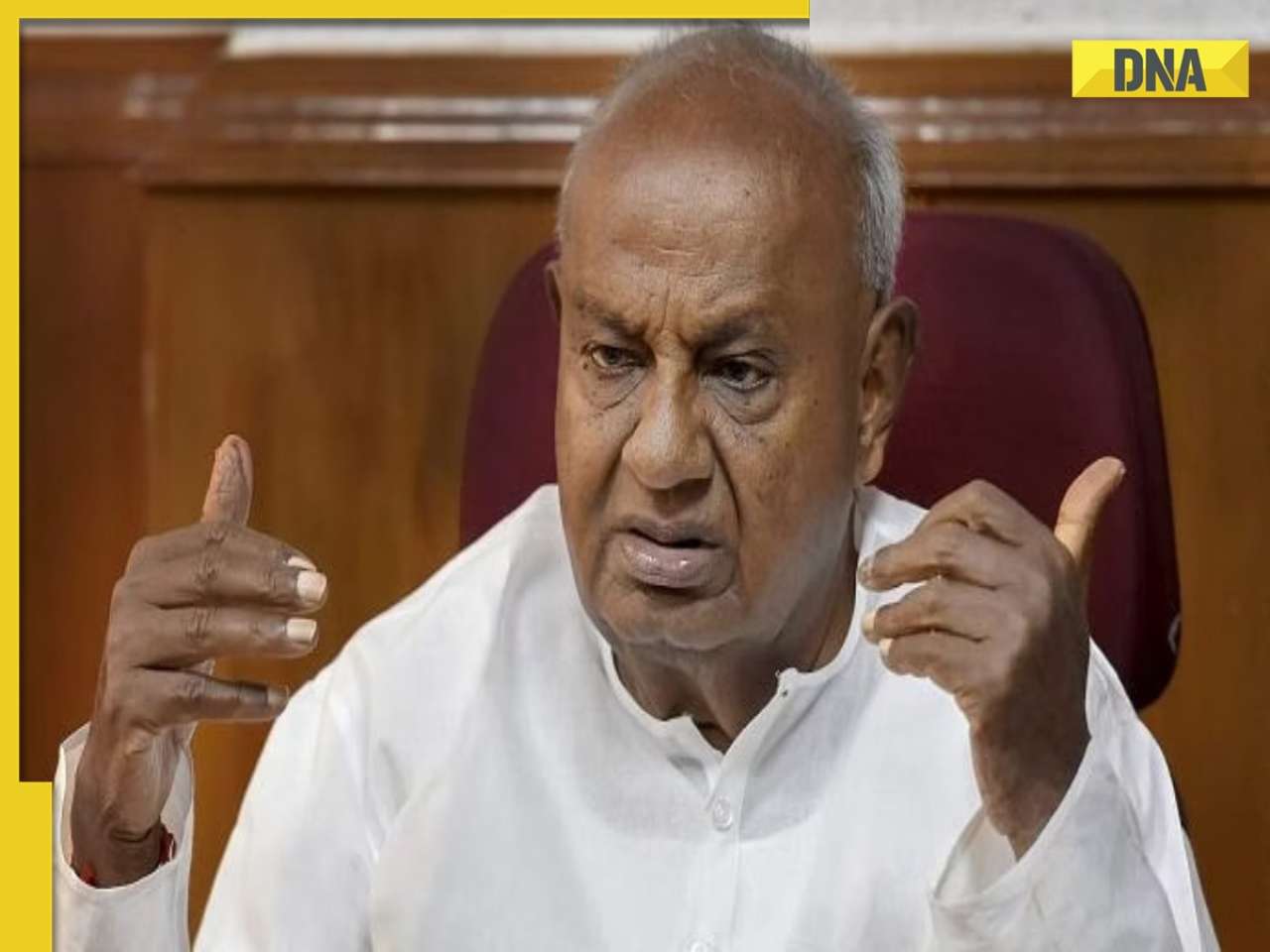Mutual funds and brokerages are well-advised to take lessons from a clump of students at the Indian Institute of Management, Lucknow on how to beat the Nifty in returns.
MUMBAI: Mutual funds and brokerages are well-advised to take lessons from a clump of students at the Indian Institute of Management, Lucknow on how to beat the Nifty in returns.
‘Credence Capital’, a fund set up with voluntary contribution from IIM students, has come up trumps, even as the stock markets ended last year in agony.
The class of 2007-09 contributed a minimum Rs 5,000, and there was no upper limit. In all, sixty students invested.
The fund saw intermittent lumpy contributions. But on March 31, 2008, their efforts paid rich dividends.
The equity fund contributed an impressive 29% returns, while a derivatives fund gave a stupendous return of 81%.
The Nifty, the broad barometer benchmarked, returned just 19% in the period.
“Our fund was less risky than the Nifty, but gave more returns,” says Hrishabh Sanghvi, age 23, a third-generation investor.
Credence was no run-of-the-mill kitty corpus.
Sanghvi said the fund was a stickler to rules, and posted newsletters giving a summary of what happened in the past week and expectations for the coming one.
The newsletter also analysed F&O data and gleanings were emailed to all investors, every week.
Sridhar Reddy, Sanghvi’s senior, said managing other people’s money responsibly and be accountable to their class mates was a learning experience. “It is similar to any industrial exposure,” says Reddy.
For Sanghvi, though, equity runs in his veins, and his selection as the fund manager of Credence was no walkover.
His mother Malini is a member of the Bombay Stock Exchange, dad Ajit fund manager with a private wealth management firm.
Sanghvi had to go through the grind managing a notional fund, and outperforming
the rest of the students before being selected as one of the five fund managers for Credence.
“Our seniors selected us. They gave us a virtual portfolio of Rs 1 lakh,” Sanghvi told DNA Money from Indore.
“We had to explain the theories behind every investment decision. The results from the team tasks were also crucial to the selection.”
Sanghvi’s seniors are just getting into the big, ruthless world of investment banking.
Reddy is joining Kotak Mahindra Bank and will be handling the derivatives/treasury book, while another senior, Alok Noronha is joining Edelweiss Capital, again on the derivatives side.
Another student, Siddharth Kanoria, is also joining Edelweiss in the structured products group and will be creating exotic financial products for the market.
Apparently, being a good team player was a major criterion as every investment decision had to be approved by four out of the five members in the investment committee.
Egos had no place at all.
IIM professors Vipul and Manoj Anand guided them, after the institute faculty realised that making them manage public money and doses of theory could mould students into excellent fund managers.
More than profit maximisation it was risk management and preservation of capital that was key.
It is not that they always made money. Strict stop-losses were crucial to success.
By putting 5% to 10% stop-losses and laying emphasis on supports and resistances based on technical analysis were critical.
Their success is sparking interest across university campuses.
The Management Development Institute, Gurgaon, has a similar fund called Unnati.
In January, Credence began buying puts, and harvested rich gains when the markets tanked.
“It was a team decision, we realised that the trend in the markets was not supported by momentum,” Sanghvi recounts. “The yen was appreciating against the dollar and the markets were moving in a channel,” he said.
At a time when fund houses are finding it difficult to get quality managers, it is likely that Sanghvi, Reddy and their fund-manager batchmates would find good jobs.
But both would give only five years to their employer. They aim to set up their own
hedge funds after that.
![submenu-img]() This singer helped BCCI when it had no money to award 1983 World Cup-winning Indian cricket team, raised 20 lakh by...
This singer helped BCCI when it had no money to award 1983 World Cup-winning Indian cricket team, raised 20 lakh by...![submenu-img]() Virat Kohli’s new haircut ahead of RCB vs CSK IPL 2024 showdown sets internet on fire, see here
Virat Kohli’s new haircut ahead of RCB vs CSK IPL 2024 showdown sets internet on fire, see here![submenu-img]() BCCI bans Mumbai Indians skipper Hardik Pandya, slaps INR 30 lakh fine for....
BCCI bans Mumbai Indians skipper Hardik Pandya, slaps INR 30 lakh fine for....![submenu-img]() 'Justice must prevail': Former PM HD Deve Gowda breaks silence in Prajwal Revanna case
'Justice must prevail': Former PM HD Deve Gowda breaks silence in Prajwal Revanna case![submenu-img]() India urges students in Kyrgyzstan to stay indoors amid violent protests in Bishkek
India urges students in Kyrgyzstan to stay indoors amid violent protests in Bishkek![submenu-img]() Meet IIT graduates, three friends who were featured in Forbes 30 Under 30 Asia list, built AI startup, now…
Meet IIT graduates, three friends who were featured in Forbes 30 Under 30 Asia list, built AI startup, now…![submenu-img]() Meet woman who cracked UPSC in fourth attempt to become IAS officer, secured AIR...
Meet woman who cracked UPSC in fourth attempt to become IAS officer, secured AIR...![submenu-img]() Meet IIT JEE 2024 all-India girls topper who scored 100 percentile; her rank is…
Meet IIT JEE 2024 all-India girls topper who scored 100 percentile; her rank is…![submenu-img]() Meet PhD wife of IIT graduate hired at Rs 100 crore salary package, was fired within a year, he is now…
Meet PhD wife of IIT graduate hired at Rs 100 crore salary package, was fired within a year, he is now…![submenu-img]() Meet woman not from IIT, IIM or NIT, cracked UPSC exam in first attempt with AIR...
Meet woman not from IIT, IIM or NIT, cracked UPSC exam in first attempt with AIR...![submenu-img]() DNA Verified: Is CAA an anti-Muslim law? Centre terms news report as 'misleading'
DNA Verified: Is CAA an anti-Muslim law? Centre terms news report as 'misleading'![submenu-img]() DNA Verified: Lok Sabha Elections 2024 to be held on April 19? Know truth behind viral message
DNA Verified: Lok Sabha Elections 2024 to be held on April 19? Know truth behind viral message![submenu-img]() DNA Verified: Modi govt giving students free laptops under 'One Student One Laptop' scheme? Know truth here
DNA Verified: Modi govt giving students free laptops under 'One Student One Laptop' scheme? Know truth here![submenu-img]() DNA Verified: Shah Rukh Khan denies reports of his role in release of India's naval officers from Qatar
DNA Verified: Shah Rukh Khan denies reports of his role in release of India's naval officers from Qatar![submenu-img]() DNA Verified: Is govt providing Rs 1.6 lakh benefit to girls under PM Ladli Laxmi Yojana? Know truth
DNA Verified: Is govt providing Rs 1.6 lakh benefit to girls under PM Ladli Laxmi Yojana? Know truth![submenu-img]() Kiara Advani stuns in Prabal Gurung thigh-high slit gown for her Cannes debut, poses by the French Riviera
Kiara Advani stuns in Prabal Gurung thigh-high slit gown for her Cannes debut, poses by the French Riviera![submenu-img]() Heeramandi star Taha Shah Badussha makes dashing debut at Cannes Film Festival, fans call him ‘international crush’
Heeramandi star Taha Shah Badussha makes dashing debut at Cannes Film Festival, fans call him ‘international crush’![submenu-img]() Streaming This Week: Madgaon Express, Zara Hatke Zara Bachke, Bridgerton season 3, latest OTT releases to binge-watch
Streaming This Week: Madgaon Express, Zara Hatke Zara Bachke, Bridgerton season 3, latest OTT releases to binge-watch![submenu-img]() Sunanda Sharma exudes royalty as she debuts at Cannes Film Festival in anarkali, calls it ‘Punjabi community's victory’
Sunanda Sharma exudes royalty as she debuts at Cannes Film Festival in anarkali, calls it ‘Punjabi community's victory’![submenu-img]() Aishwarya Rai walks Cannes red carpet in bizarre gown made of confetti, fans say 'is this the Met Gala'
Aishwarya Rai walks Cannes red carpet in bizarre gown made of confetti, fans say 'is this the Met Gala'![submenu-img]() Haryana Political Crisis: Will 3 independent MLAs support withdrawal impact the present Nayab Saini led-BJP government?
Haryana Political Crisis: Will 3 independent MLAs support withdrawal impact the present Nayab Saini led-BJP government?![submenu-img]() DNA Explainer: Why Harvey Weinstein's rape conviction was overturned, will beleaguered Hollywood mogul get out of jail?
DNA Explainer: Why Harvey Weinstein's rape conviction was overturned, will beleaguered Hollywood mogul get out of jail?![submenu-img]() What is inheritance tax?
What is inheritance tax?![submenu-img]() DNA Explainer: What is cloud seeding which is blamed for wreaking havoc in Dubai?
DNA Explainer: What is cloud seeding which is blamed for wreaking havoc in Dubai?![submenu-img]() DNA Explainer: What is Israel's Arrow-3 defence system used to intercept Iran's missile attack?
DNA Explainer: What is Israel's Arrow-3 defence system used to intercept Iran's missile attack?![submenu-img]() This singer helped BCCI when it had no money to award 1983 World Cup-winning Indian cricket team, raised 20 lakh by...
This singer helped BCCI when it had no money to award 1983 World Cup-winning Indian cricket team, raised 20 lakh by...![submenu-img]() This film had 3 superstars, was unofficial remake of Hollywood classic, was box office flop, later became hit on...
This film had 3 superstars, was unofficial remake of Hollywood classic, was box office flop, later became hit on...![submenu-img]() Meet Nancy Tyagi, Indian influencer who wore self-stitched gown weighing over 20 kg to Cannes red carpet
Meet Nancy Tyagi, Indian influencer who wore self-stitched gown weighing over 20 kg to Cannes red carpet![submenu-img]() Telugu actor Chandrakanth found dead days after rumoured girlfriend Pavithra Jayaram's death in car accident
Telugu actor Chandrakanth found dead days after rumoured girlfriend Pavithra Jayaram's death in car accident![submenu-img]() Meet superstar who faced casting couch at young age, worked in B-grade films, was once highest-paid actress, now..
Meet superstar who faced casting couch at young age, worked in B-grade films, was once highest-paid actress, now..![submenu-img]() Viral video: Flood-rescued dog comforts stranded pooch with heartfelt hug, internet hearts it
Viral video: Flood-rescued dog comforts stranded pooch with heartfelt hug, internet hearts it![submenu-img]() Dubai ruler captured walking hand-in-hand with grandson in viral video, internet can't help but go aww
Dubai ruler captured walking hand-in-hand with grandson in viral video, internet can't help but go aww![submenu-img]() IPL 2024: Virat Kohli drops massive hint on MS Dhoni’s retirement plan ahead of RCB vs CSK clash
IPL 2024: Virat Kohli drops massive hint on MS Dhoni’s retirement plan ahead of RCB vs CSK clash![submenu-img]() Do you know which God Parsis worship? Find out here
Do you know which God Parsis worship? Find out here![submenu-img]() This white marble structure in Agra, competing with Taj Mahal, took 104 years to complete
This white marble structure in Agra, competing with Taj Mahal, took 104 years to complete


























































)
)
)
)
)
)